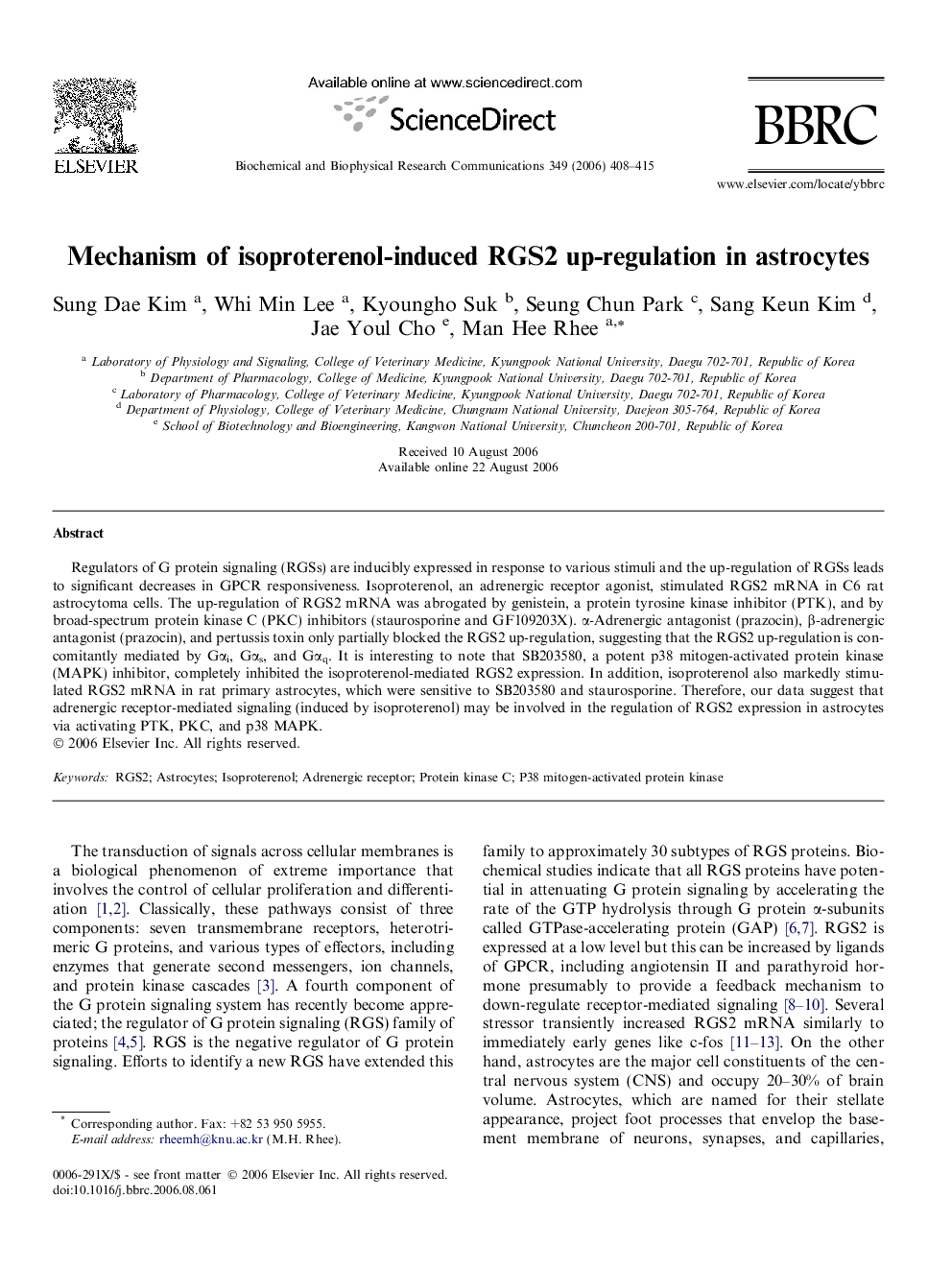| Article ID | Journal | Published Year | Pages | File Type |
|---|---|---|---|---|
| 1939098 | Biochemical and Biophysical Research Communications | 2006 | 8 Pages |
Regulators of G protein signaling (RGSs) are inducibly expressed in response to various stimuli and the up-regulation of RGSs leads to significant decreases in GPCR responsiveness. Isoproterenol, an adrenergic receptor agonist, stimulated RGS2 mRNA in C6 rat astrocytoma cells. The up-regulation of RGS2 mRNA was abrogated by genistein, a protein tyrosine kinase inhibitor (PTK), and by broad-spectrum protein kinase C (PKC) inhibitors (staurosporine and GF109203X). α-Adrenergic antagonist (prazocin), β-adrenergic antagonist (prazocin), and pertussis toxin only partially blocked the RGS2 up-regulation, suggesting that the RGS2 up-regulation is concomitantly mediated by Gαi, Gαs, and Gαq. It is interesting to note that SB203580, a potent p38 mitogen-activated protein kinase (MAPK) inhibitor, completely inhibited the isoproterenol-mediated RGS2 expression. In addition, isoproterenol also markedly stimulated RGS2 mRNA in rat primary astrocytes, which were sensitive to SB203580 and staurosporine. Therefore, our data suggest that adrenergic receptor-mediated signaling (induced by isoproterenol) may be involved in the regulation of RGS2 expression in astrocytes via activating PTK, PKC, and p38 MAPK.
